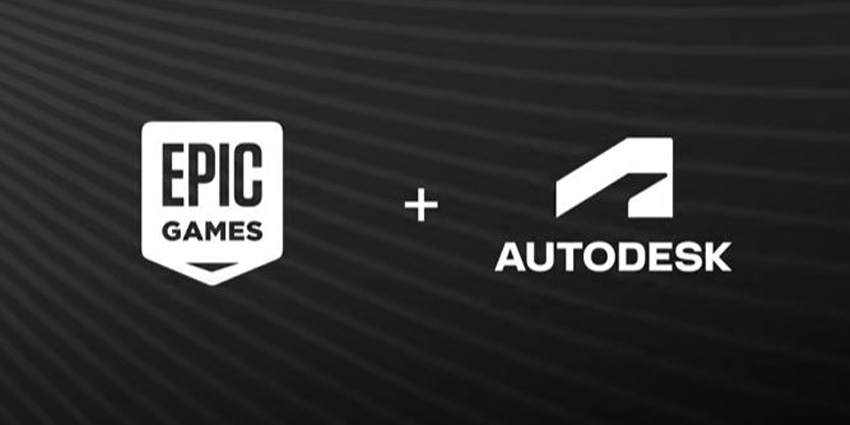As virtual, augmented, and mixed reality (AR/VR/MR) hardware grows in sophistication, many developers are scrambling to create content to match the evolving landscape.
To power emerging immersive extended reality (XR) demands, developers use increasingly accessible toolkits for AR/VR/MR content and application development. Firms like Epic Games and Autodesk are working to meet this demand.
A vital tool in an XR developer’s belt is a real-time 3D (RT3D) engine. RT3D development engines provide a suite allowing creators to access powerful content creation tools generally reserved for video game development.
A famed and long-running RT3D platform is Unreal Engine 5 (UE5) by Epic Games, initially a games development service. Although with a demand for high-quality XR applications stemming from increasing hardware sales, many developers are turning to UE5 to create immersive experiences.
Thanks to the popularity of the XR gaming market, many enterprise-grade RT3D solution providers are reaping the benefits of technology innovation funded and pushed the gaming marketplace. Furthermore, some RT3D engine firms provide developers with funding opportunities to promote XR content creation.
On the other hand, Autodesk is a service for creating computer-aided designs (CAD) for clients in vertical markets, including entertainment, manufacturing, and industry.
The service provides end-users like architects, engineers, and structural designers with a hub to create a digital version of real-world products and buildings. The two firms have repeatedly partnered to secure enterprise clients with modifiable high-quality RT3D data.
Providing $11 Million for Volumetric Video Growth
For example, in early November, Epic Games and Autodesk assisted volumetric video firm Arcturus in raising roughly $11 million. Cloudtree Ventures led the funding round, enabling Arcturus to scale its immersive video editing and streaming tools.
Kamal Mistry, the CEO of Arcturus, added,
“We see the translation of true human performance as a fundamental building block of spatial experiences, including XR and the metaverse. Our goal is to give everyone from multinational brands to independent creators the tools they need to create authentic digital human representations in the metaverse of their choice”
Mistry also explained that from Q2 to Q3 this year, Arcturus experienced a 270 percent increase in adoption of its flagship product, HoloSuite.
Holosuite is a Software as a Service (SaaS) post-production tool for editing, compressing, and streaming volumetric video. The SaaS applies across various industries and enables Unreal Engine and Autodesk developers to import content captured via volumetric video technology, the 3D recording of a subject or space. The service also has Unity support.
Holosuite provides UE5 and AutoDesk creators with deep developer tools to import avatars captured in 3D with full movement into their immersive environments.
Diana Colella, the SVP at Autodesk Media & Entertainment, added,
“We are thrilled to help Arcturus expand the potential of its existing tools. By accelerating innovation we can help users quickly maximize the potential of using animated 3D video in their work, and deliver the compelling content that the media and entertainment industry demands”
The $11 million funding enables Arcturus to enhance interoperability between HoloSuite and Autodesk. The firms are attempting to create an integrated suite that allows users to quickly fill an environment designed on Autodesk with virtual animated avatars.
Additionally, the funding enables Epic Games to leverage Arcturus’ solution to increase the volumetric video opportunities on UE5. Holosuite integration means UE5 developers can populate immersive environments with high-quality volumetrically captured avatars. Arcturus will also integrate additional tools into the UE5 suite in the future.
Matching Client Demand
According to Arcturus, the volumetric video market will experience a compound annual growth rate (CAGR) of nearly 30 percent across the next five years.
Arcturus believes this growth is due to the demand for high-quality AR content, Metaverse experiences, and 360-degree live broadcasts. Furthermore, increased demand for XR increases immersive content demand.
For example, current Metaverse platforms require in-depth content to attract users, such as immersive environments, avatars, and experiences. Epic Games, and other immersive firms, have resources and funding opportunities available to drive the XR developer talent pool.
Arcturus’ $11 million in funds and the Epic Games Autodesk integration will make it easier for creators to compress, edit, and stream volumetric video, according to Alasdair Coull, Chief Technology Officer of Special Projects for Epic Games.
He added,
“We’ve seen firsthand how Arcturus’ tools are opening the door to broader utilization of volumetric video and we are proud to partner with Arcturus to continue to accelerate the evolution of the technology”
Additionally, the funding allows Arcturus to grow its cooperate structure, including staff increases in its engineering, sales, and research departments.
Autodesk and Epic Games Collaborate on Rivit Integration
In September, Autodesk and Epic Games entered a strategic collaboration to accelerate industrial RT3D solutions with a starting focus on Architecture, Engineering and Construction (AEC).
The collaboration looks to improve interoperability and optimise integrated third-party services for Autodesk Revit – an application for designing and delivering building and infrastructure projects.
Autodesk is accomplishing its open platform goals by integrating Epic Games’ Twinmotion application into its Revit suite. Twinmotion will enable Autodesk users to leverage RT3D rendering and storytelling tools to enhance environment design. For example, Revit users can now use integrated UE5 tools to enhance an immersive environment with avatar population, weather, and time of day options.
Autodesk Revit users can access Twinmotion directly from the application, allowing developers to visualise scenarios quickly.
Marc Petit, the Vice President of Epic Games and the Unreal Engine Ecosystem, says that the Autodesk Revit and Twinmotion collaboration will help to deliver a seamless RT3D design experience for industry professionals.
Petit also added:
We share a common goal with Autodesk, giving customers more time to be innovative. By tapping into Epic’s ecosystem of real-time 3D tools and libraries, users can spend more time bringing their designs to life and less time handling complex data and technical workflows.
A Collaborative History Between Epic Games and Autodesk
Moreover, Autodesk and Epic Games debuted the Unreal Live Link plug-in in 2021. The tool enables RT3D developers to stream animation data from Maya into UE5. Autodesk updated the plug-in in September to improve the UE5 and Maya optimisation and efficiency across its RT3D production pipelines.
The firms first became partners in 2008 when Autodesk joined Epic Games’ Integrated Partners Program. The program marked the first time Autodesk integrated its CAD creation service into the Unreal Engine suite.
Since its initial integration, the team has worked consistently to enhance interoperability and optimisation. Now, the firms are helping to shape the XR industry. Autodesk and Epic Games are members of the Metaverse Standards Forum, which aims to standardise open platforms and interoperability.
The forum seeks to curate an open XR community which delivers better value for customers participating in immersive services.
Read More: www.xrtoday.com









 Bitcoin
Bitcoin  Ethereum
Ethereum  Tether
Tether  XRP
XRP  Solana
Solana  USDC
USDC  Dogecoin
Dogecoin  Cardano
Cardano  TRON
TRON  Lido Staked Ether
Lido Staked Ether  Wrapped Bitcoin
Wrapped Bitcoin  Sui
Sui  Chainlink
Chainlink  Wrapped stETH
Wrapped stETH  Avalanche
Avalanche  Stellar
Stellar  Shiba Inu
Shiba Inu  Hedera
Hedera  LEO Token
LEO Token  Hyperliquid
Hyperliquid  Bitcoin Cash
Bitcoin Cash  Toncoin
Toncoin  Litecoin
Litecoin  Polkadot
Polkadot  USDS
USDS  WETH
WETH  Monero
Monero  Pi Network
Pi Network  Wrapped eETH
Wrapped eETH  Bitget Token
Bitget Token  Pepe
Pepe  Binance Bridged USDT (BNB Smart Chain)
Binance Bridged USDT (BNB Smart Chain)  Ethena USDe
Ethena USDe  Coinbase Wrapped BTC
Coinbase Wrapped BTC  WhiteBIT Coin
WhiteBIT Coin  Uniswap
Uniswap  Bittensor
Bittensor  Dai
Dai  NEAR Protocol
NEAR Protocol  Aptos
Aptos  Aave
Aave  OKB
OKB  Ondo
Ondo  Jito Staked SOL
Jito Staked SOL  Internet Computer
Internet Computer  Ethereum Classic
Ethereum Classic  BlackRock USD Institutional Digital Liquidity Fund
BlackRock USD Institutional Digital Liquidity Fund  Tokenize Xchange
Tokenize Xchange